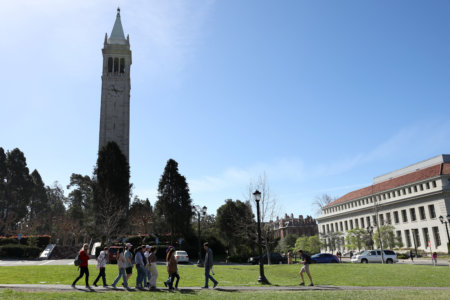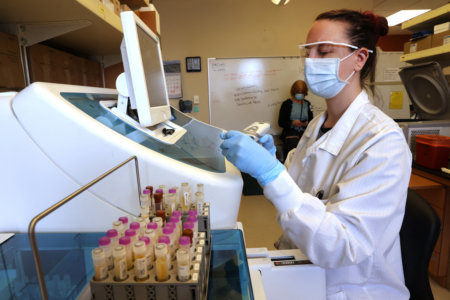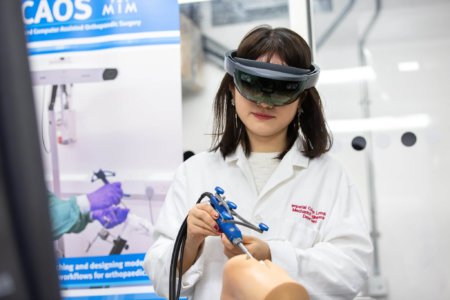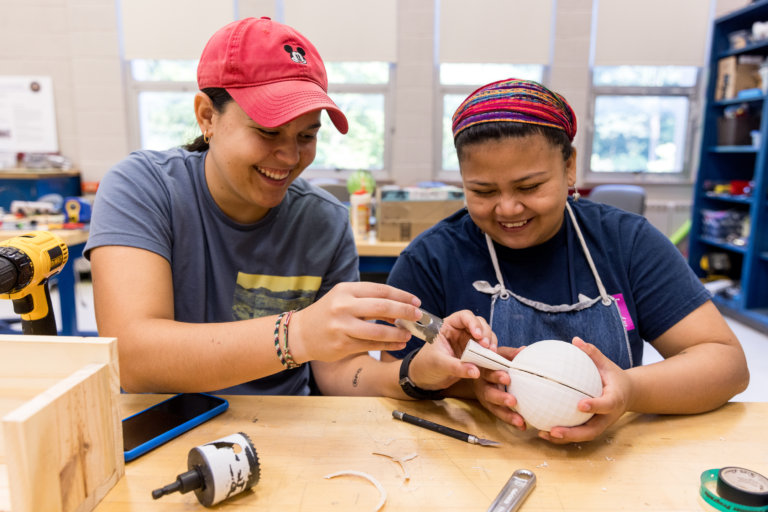
Slowly but surely, more women are joining the STEM workforce. While men continue to dominate the field, statistics show that more women are applying to study STEM in college with the number of women awarded a STEM degree increasing by 50,000 each year.
However, the gender gap in the STEM workplace persists and this needs to change. Women play a vital role in the STEM field and are more than capable of being the changemakers tomorrow. They provide a different perspective, seeing the different ways to innovate and create a better future. Not convinced? History does more than prove this. From Barbara Askins to Carolyn R. Bertozzi, Rosalind Franklin, Mary Engle Pennington and more, these women paved the way in the STEM field.
If you seek a STEM education that breaks glass ceilings, consider these top colleges in the US:
Sweet Briar College

Sweet Briar College believes excellent equestrians become exemplary leaders. Source: Sweet Briar College
Doctors. Engineers. Scientists. Innovators. Disruptors. These are some of the roles women graduates have taken on after gaining an innovative and energising education at the Sweet Briar College. An all-women college in Virginia, Sweet Briar boasts a small student body and a distinctive focus on student success. Its campus is safe and spacious, with more than 2,800 acres of land including trails, lakes, woodland, apiary, vineyard, a greenhouse, and lots of outdoor opportunities.
As one of only two women’s colleges in the US with an accredited by the Engineering Accreditation Commission of ABET, Sweet Briar does engineering differently. It offers elective courses in environmental engineering, mechanical engineering and electrical engineering, all conducted in a practical manner. Here, young women learn how to break things, including the mould. They make things. They take things apart and they put them back together.
Sweet Briar’s women’s leadership core curriculum empowers students with scientific, civic and business literacy so they can be successful and lead in both their work and home lives. Students learn how to harness their natural leadership abilities and put those into practice through research with faculty, internships and roles in student organisations.
With a tradition of riding excellence tradition that goes back more than 100 years, students can ride their way to success here too. This unique equestrian programme allows students to blend their passion for riding and commitment to getting an excellent STEM education. To find out how you can be part of a close-knit women’s community with relevant and challenging academic programmes, click here.
Drexel University
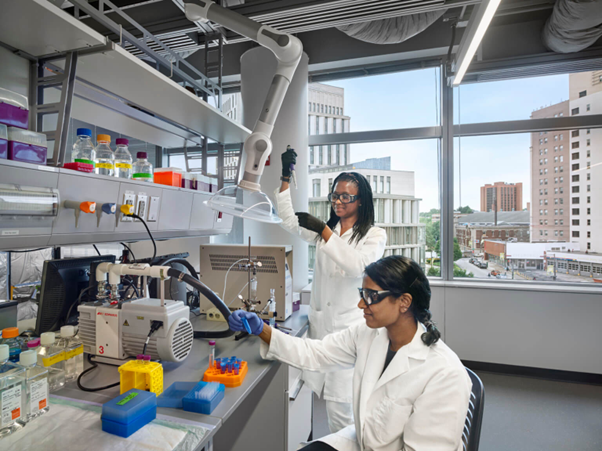
Drexel University is known to be the only independent biomedical engineering school in the US, with opportunities for industrial placements that boost graduate employment. Source: School of Biomedical Engineering, Drexel University
This Philadelphia-based university is part of the Cellicon Valley Avenue of Technology, one of America’s key hubs of medical universities, hospitals, and biomedical health-related industries. It’s no surprise then that the School of Biomedical Engineering, Science and Health Systems at Drexel University has the honour of being the only independent biomedical engineering school in the country.
Biomed at Drexel is always pushing the frontiers of this emerging field. Its Master’s in Biomedical Engineering programme is listed in the top 20 of its kind nationwide, and enjoys many accolades by various US media outlets. The Bachelor of Science in Biomedical Engineering is ABET-accredited, offering co-op education programmes that integrate real-world industry opportunities alongside collaborative work with illustrious faculty members.
Drexel has one of the oldest and most expansive co-op programmes in the world, which gives graduates a head start in the biomed industry with six t0 18 months of full-time work experience. Most biomedical engineering majors opt for the five-year degree programme with 18 months of work experience and ease their way seamlessly into graduate employment from the network formed during their co-op placement.
Additionally, Drexel provides unique options for pre-medical, pre-law, and pre-veterinary pathways under its biomedical engineering programme for greater flexibility post-graduation. Other related specialisations such as Bioinformatics and Neuroengineering, in addition to Biomedical Science, Biomedical Engineering and Business, and Bioinformatics can be found at the postgraduate level.
The Ohio State University

With more than 60,000 alumni, students can tap into a strong professional network around the world. Source: The Ohio State University/Facebook
There are many reasons why students from all over the world choose The Ohio State University’s College of Engineering. Programmes are ranked No. 1 among all Ohio universities and 16th among public universities according to US News and World Report. The campus has a strong community, urban, and metropolitan feel. Most graduate students receive funding support and various other forms of aid from their programme of study. The Office of International Affairs provides support for immigration, employment and other student programming.
A vast array of MS and PhD degrees here are highly ranked and led by world-renowned researchers and educators. Graduate students have access to career services support, such as resume writing, interview skills and access to more than 600 employers. With more than 60,000 alumni, students can tap into a strong professional network around the world.
When you choose Ohio State, you’re choosing a world-class institution that will prepare you to be key contributors to society through your technological, professional and personal skills. And Ohio State offers a wide range of academic graduate programmes, including Aerospace Engineering, Mechanical Engineering, Nuclear Engineering, Biomedical Engineering, Chemical and Biomolecular Engineering, Civil Engineering, Computer Science and Engineering, Electrical and Computer Engineering, Engineering Education, Food, Agricultural and Biological Engineering, Integrated Systems Engineering, Materials Science and Engineering and Welding Engineering.
Furthermore, at the Knowlton School of Architecture, you can choose from programmes in Architecture, Landscape Architecture as well as City and Regional Planning. To learn more about how Ohio State champions human potential through unrivalled experiences, check out its Facebook, Twitter, LinkedIn, Instagram and YouTube.
Tufts University

Engineers fix things that are broken, improve those that work and come up with new inventions. Source: Tufts University: School of Engineering
As a graduate student of Tufts School of Engineering, you’ll be part of something bigger than a prestigious institution of education and research. A personalised path of study — just a few miles from the high-tech hubs of Boston and Cambridge — plus mentorship from top industry figures, collaborative multidisciplinary research, and comprehensive professional development ensure this.
Interdisciplinary learning is crucial to understanding how engineering solutions relate to the greater world. At Tufts, you’ll have the opportunity to collaborate with faculty, classmates, and researchers across all disciplines as a student and researcher.
Master’s programmes in Bioengineering, Computer Engineering, Cybersecurity and Public Policy, Data Science, Human-Robot Interaction, as well as Materials Science and Engineering — to name a few — are offered by several departments and maximise interdisciplinary connections.
“As an engineering school in a student-centred research university, our strong research portfolio differentiates us from the traditional liberal arts colleges, while our liberal-arts-based engineering education makes us unique among major research universities in the country,” says Dean Jianmin Qu. “This unique value proposition is well-suited to students who want to be exposed to and engaged in a rich research environment without losing the feel of a small liberal arts college.”
Here, you’re not just another number. Classes are small, which allows personalised attention and more interactions with talented classmates. To learn more about the quality, depth, and breadth of Tufts School of Engineering programmes, click here.
*Some of the schools featured in this article are commercial partners of Study International








